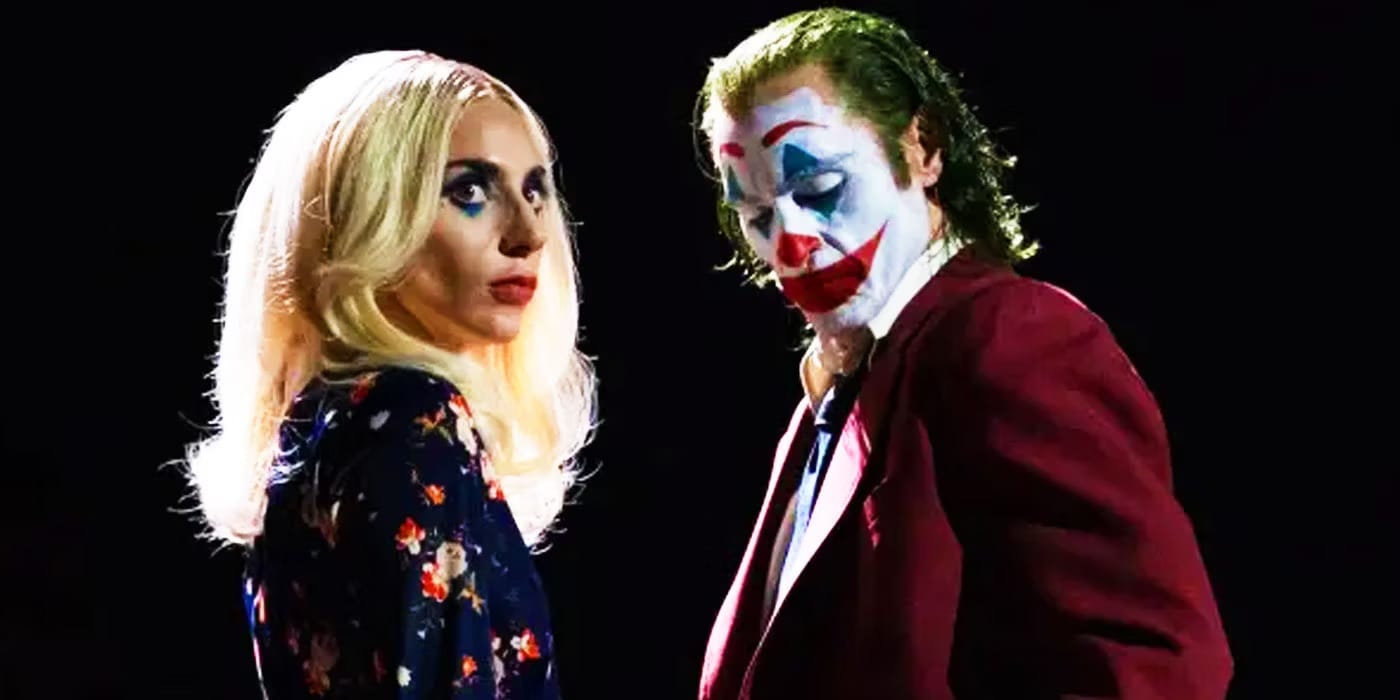NOT SO FUNNY NOW

It's not easy being a clown. Just ask Pagliacci, Punchinello, or Pierrot, and you'll soon learn that behind every smiling clown face is a tragic fool. Arthur Fleck (Joker) is no different from his red-lipped predecessors and pays a heavy price for embodying the duality of the clown/fool archetype.
Having admired Joaquin Phoenix's Oscar-winning performance in Joker (2019) but feeling fairly indifferent toward the film overall, I didn’t approach the 2024 sequel expecting anything but the consensus disaster the internet had declared it to be. With an all-time low Popcornmeter rating for a comic book-based movie on Rotten Tomatoes—31%—who’s laughing now? Certainly not Warner Brothers.
Yet, I do admire a film that almost nihilistically destroys its own creation by punishing the very audience it seems to loathe, rubbing salt in the wound by making it a musical. If there’s a genre more divisive than a musical, I’ve yet to find it, and merging it with a comic book character seems to be a true clown-faced kiss of death for Joker: Folie à Deux.
Setting aside the obvious lack of focus in the plot and the uneven placement of story beats, if one views the film as a fever-dream tightrope walk between sanity and madness, reality and fantasy, it sort of works in an unsettling, Dennis Potter's Pennies from Heaven kind of way. Ironically, one of the best uses of music comes early on when Fleck sings "For Once In My Life" to his fellow inmates at Arkham Asylum, acknowledging his first feelings of love for Harleen Quinzel (Lady Gaga), before the film’s stylistic flamboyance fully emerges. There's something chillingly effective about a musical number in such a grim setting, and Phoenix delivers the song with a compelling intensity in his tortured Fleck voice.
If the music therapy class at Arkham is supposed to offer Fleck a chance at rehabilitation in Arkham, it doesn’t last long. As the film progresses, his violent fantasies intensify with each musical number, making it clear that the songs represent his emotional state, fuelled by a fantasy of love based on an illusion mirrored back at him by Harley. Quinzel, after all, loves the idea of the Joker more than the reality of Arthur. With more nuance, the film could have explored something truly interesting here, but unfortunately, Phillips seems to think he can ride on the wave of his shallow conceit and avoid deeper scrutiny from the audience. He can't and doesn't.
Another misstep is the casting of Steve Coogan as a television interviewer. I couldn’t help but see Alan Partridge just moments away from breaking into an almighty "AHA!" in front of Phoenix’s Arthur. Coogan, though a famous comedic actor (thanks to Partridge), is woefully limited in range, and this casting choice raised alarm bells about Phillips’s artistic judgment. A similarly baffling choice is the go-nowhere court case subplot, which tests the audience’s patience and exposes the screenplay's overall weaknesses though someone hilariously compared it to the final ever episode of Seinfeld which made me smile as the scenes dragged on.
It’s a shame because, with a few different choices, Phillips might have captured lightning in a bottle a second time. Personally, I would have preferred a Clockwork Orange-style storyline, where Arthur is rehabilitated with a new therapeutic drug, only for his Joker persona to finally break through, leading to a second murderous rampage through Gotham—proving he has left Arthur behind for good. Or perhaps a Prison Break-style plot, where Arthur rallies the loyalty of fellow inmates as he orchestrates an escape from Arkham, returning to Gotham with an insurgency of clown terrorists to stage a coup and declare himself the clown mayor of the city.
Perhaps Phillips wanted to subvert comic book conventions as much as possible, putting the Joker back in his box to warn anyone tempted to identify with such a psychopath—whether incel or Antifa—against doing so. Now that I think of it, they could have had an amazing scene where Fleck is taken to the electric chair, reprising James Cagney’s iconic moment in Angels with Dirty Faces, where he pretends to scream and cry down the corridor of Death Row as a cautionary tale to the street kids who idolise his criminal activity.
If only Todd had called. We could have fleshed it out.